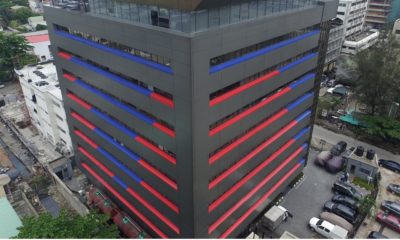- Insurance: New Recapitalization Policy Woos Foreign Investors
Foreign investors have continued to indicate interest in insurance companies in Nigeria following the June 2020 deadline for New Minimum Capital Requirements given by the Federal Government through the National Insurance Commission, NAICOM.
The implication of the policy is that all NAICOM licensed insurance companies will have to re-adjust and increase their capital base to ensure maximum stability.
Investigations reveal that new companies seeking to start up insurance and re-insurance businesses in Nigeria, will immediately comply with the policy but existing companies have a deadline of June 30th 2020.
According to a circular titled, ‘Minimum Paid Share Capital Policy Insurance and Re-insurance’ released on May, 20th 2019, Paid Share Capital was increased from N2bn in 2007 to N8bn; General Insurance Business from N3bn to N10bn; Composite Business from N5bn to N18bn and Re-insurance Business from N10bn naira to N20bn.
Reports, however, has it that, raising the required funds may be difficult for local companies; hence the reason foreign investors are jumping on the opportunity presented by the recapitalization policy.
According to Pius Agboola, the Director, Policy and Regulations Directorate, lack of funds by some local companies is worsened by NAICOM’s resolution to end borrowing for the purpose of recapitalization
He said, “If anyone of them wants to bring in money, they must become owners and manage the company together; not give them money and go and sit down and expect them to pay back. When they are owners, they will have directors, they know how the company is being run. If the person at the helms of affairs is not doing well, they will fire him and employ another person.”
He added that the purpose of the previous recapitalization was to encourage voluntary merging but some companies at the time chose to borrow rather than merge. He noted that although some companies that borrowed after the last recapitalization were progressing, a large number of them had to be acquired by foreign investors to ensure stability. Adding that the new recapitalization policy will not give room for borrowing.
Some of the foreign investors that have acquired local insurance companies as revealed by NAICOM include; Old Mutual, Prudential Africa, Axa Mansard, Allianz Group as well as InsuResilience Fund, which recently acquired 39.25% stake in Royal Exchange General Insurance Company through its N3.6bn investment which is technically in compliance with NAICOM’s policy.
Agboola also said that insurance companies generally prefer being acquired to strengthen their brands through a merger with other local brands, evidenced in the number of insurance companies that embraced merging in 2007 recapitalization exercise and that these companies are growing stronger in the industry.
The 2007 recapitalization exercise saw the emergence of, Veritas Kapital from a merger of four (4) insurance companies; Regency, from the merging of three (3); Sterling emerged from the merging of three (3) companies, Consolidated Hallmark was born from the merging of two(2) companies; African alliance was formed from two (2) companies; LASACO Assurance from a merger of two (2); Linkage Assurance came from the merging of two (2) companies; NEM, from the merging of three (3) companies.

 Forex3 weeks ago
Forex3 weeks ago
 Naira3 weeks ago
Naira3 weeks ago
 Billionaire Watch2 weeks ago
Billionaire Watch2 weeks ago


 Naira3 weeks ago
Naira3 weeks ago




 Naira2 weeks ago
Naira2 weeks ago




 Naira1 week ago
Naira1 week ago




 Naira4 weeks ago
Naira4 weeks ago
 Banking Sector4 weeks ago
Banking Sector4 weeks ago




















